
Aitutaki: The Hidden Paradise of the Cook Islands
Aitutaki, located in the Cook Islands, is often described as paradise on Earth. Known for its stunning lagoon, the island offers clear turquoise waters that are perfect for snorkeling and diving. The lagoon is dotted with small, uninhabited islets called motus, each with its own unique charm and pristine beaches. The island itself is rich in culture and history. You can visit ancient marae (sacred sites) and learn about the island's deep-rooted traditions. The local people are warm and welcoming, making your stay even more enjoyable. Don't miss the opportunity to experience a traditional Polynesian feast, known as an 'umu', where food is cooked in an underground oven. Aitutaki is also a haven for bird watchers and nature lovers. The island is home to various species of birds, and its lush landscapes offer excellent hiking opportunities. Whether you're looking to relax on the beach, explore underwater wonders, or immerse yourself in local culture, Aitutaki has something for everyone.
Local tips in Aitutaki
- Bring reef-safe sunscreen to protect the coral reefs and marine life.
- Visit the Aitutaki Lagoon at low tide for the best snorkeling experience.
- Rent a scooter or bicycle to explore the island at your own pace.
- Attend a local church service to experience the beautiful hymns and warm community spirit.
Aitutaki: The Hidden Paradise of the Cook Islands
Aitutaki, located in the Cook Islands, is often described as paradise on Earth. Known for its stunning lagoon, the island offers clear turquoise waters that are perfect for snorkeling and diving. The lagoon is dotted with small, uninhabited islets called motus, each with its own unique charm and pristine beaches. The island itself is rich in culture and history. You can visit ancient marae (sacred sites) and learn about the island's deep-rooted traditions. The local people are warm and welcoming, making your stay even more enjoyable. Don't miss the opportunity to experience a traditional Polynesian feast, known as an 'umu', where food is cooked in an underground oven. Aitutaki is also a haven for bird watchers and nature lovers. The island is home to various species of birds, and its lush landscapes offer excellent hiking opportunities. Whether you're looking to relax on the beach, explore underwater wonders, or immerse yourself in local culture, Aitutaki has something for everyone.
When is the best time to go to Aitutaki?
Iconic landmarks you can’t miss
Tamanu Beach Resort
Discover the serene beauty and authentic charm of Tamanu Beach Resort in Aitutaki – a true tropical escape in the heart of the Cook Islands.

Koru Cafe
Discover Koru Cafe in Aitutaki, where exquisite coffee and delightful pastries meet breathtaking island views, all served with a smile.

The Boat Shed
Experience the flavors of Aitutaki at The Boat Shed, where fresh ingredients meet stunning lagoon views for an unforgettable dining adventure.

Aitutaki Village
Discover the beauty of Aitutaki Village in the Cook Islands, where tropical paradise meets serene accommodations for an unforgettable getaway.

Aitutaki Airport
Experience the beauty of Aitutaki from its regional airport, your gateway to stunning beaches and vibrant island life in the Cook Islands.

Etu Moana
Discover the enchanting beauty and tranquility of Etu Moana, a premier resort hotel in Aitutaki, perfect for relaxation and adventure.
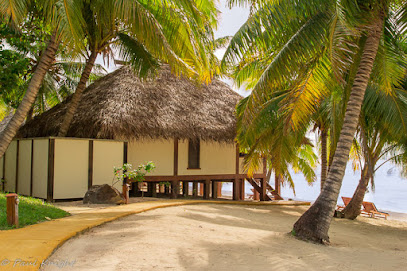
Teking Lagoon Cruises
Experience the breathtaking beauty of Aitutaki with Teking Lagoon Cruises, a top snorkeling adventure in the Cook Islands' stunning lagoon.
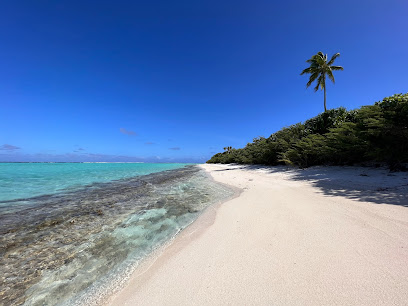
Tai Marino Beach Bungalows
Experience the ultimate island escape at Tai Marino Beach Bungalows, where paradise meets comfort in Aitutaki's stunning natural landscape.

Tai Roto Bay Beach Villas
Experience the ultimate tropical getaway at Tai Roto Bay Beach Villas in Aitutaki, where relaxation meets adventure in a stunning beachfront setting.

Blue Lagoon Restaurant & Bar
Discover the culinary delights of Aitutaki at Blue Lagoon Restaurant & Bar, where breathtaking views meet delicious local flavors.

Piraki Lookout
Discover the stunning panoramic views of Aitutaki's lagoon at Piraki Lookout, a must-visit scenic spot for every traveler seeking natural beauty.
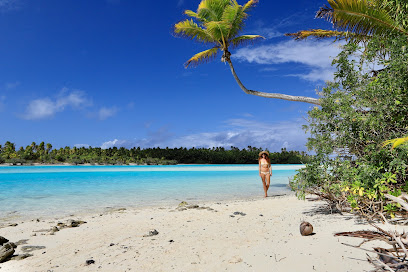
Abera's Aitutaki Villas
Experience the unparalleled beauty and tranquility of Abera's Aitutaki Villas, your perfect retreat in the heart of the stunning Aitutaki atoll.

Aitutaki Beach Villas
Discover the serenity of Aitutaki Beach Villas, offering idyllic lodging with breathtaking lagoon views and a taste of the Cook Islands culture.
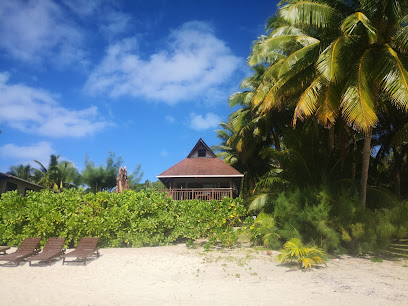
Bishop's Cruise
Discover the breathtaking beauty of Aitutaki's lagoons and islands with Bishop's Cruise, an unforgettable boat tour experience in paradise.
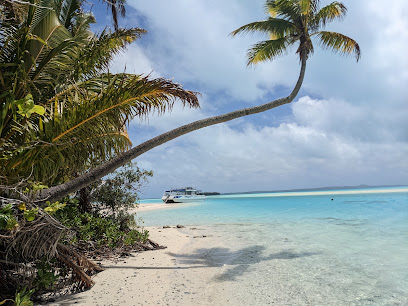
Matriki Beach Huts
Experience the natural beauty and rich culture of Aitutaki at Matriki Beach Huts, your serene beachfront retreat in the Cook Islands.

Unmissable attractions to see
Aitutaki Lagoon Private Island Resort
Discover tranquility and luxury at Aitutaki Lagoon Private Island Resort, a tropical paradise surrounded by stunning lagoons and pristine beaches.

Teking Lagoon Cruises
Experience the stunning beauty of Aitutaki with Teking Lagoon Cruises, where azure waters and vibrant marine life await you.
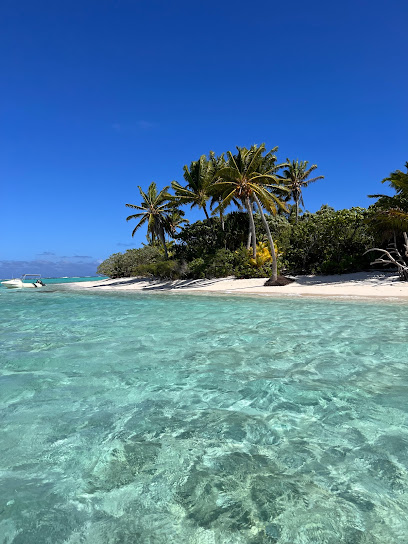
Ootu Beach
Discover the serenity of Ootu Beach in the Cook Islands, where soft sands and crystal-clear waters create an idyllic tropical escape.
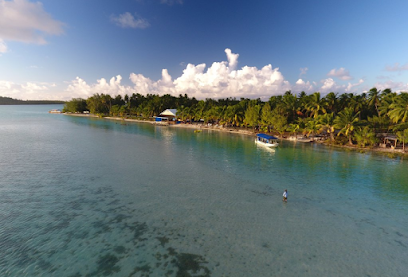
Piraki Lookout
Experience the breathtaking beauty of Aitutaki from the stunning Piraki Lookout, a must-visit scenic spot in the Cook Islands.
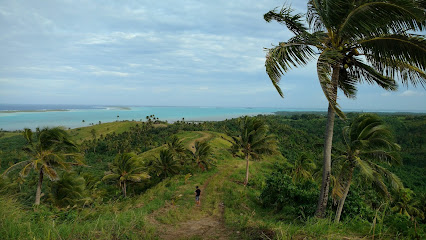
Bishop's Cruise
Explore the stunning lagoons of Aitutaki with Bishop's Cruise, where adventure meets relaxation in a tropical paradise.
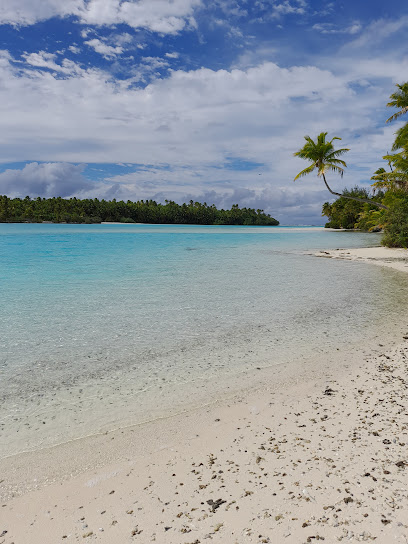
Sandbank
Experience the breathtaking beauty of Sandbank, a tranquil paradise in Arutanga, perfect for relaxation, swimming, and vibrant marine life exploration.
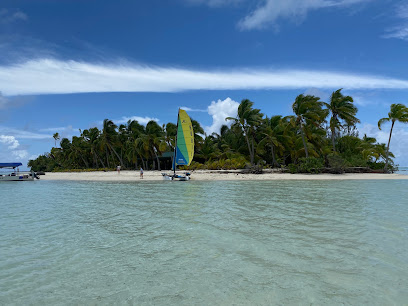
Wet n wild Aitutaki - Aitutaki Fishing
Discover the beauty of Aitutaki while enjoying immersive fishing experiences at Wet n Wild Aitutaki, where adventure meets paradise.
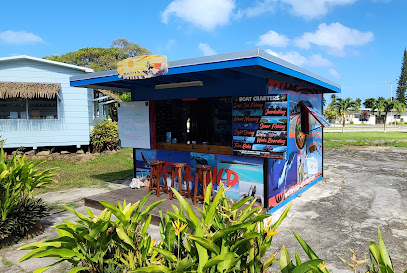
Honeymoon Island - Maina Iti
Experience a slice of paradise at Honeymoon Island - Maina Iti, where pristine beaches and vibrant marine life await your discovery.
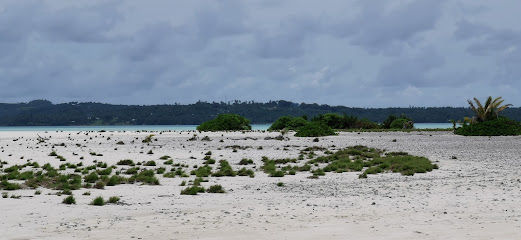
Sailing Aitutaki
Experience Aitutaki's breathtaking lagoon on a private, eco-friendly sailing charter with Captain Ted. Snorkel, explore, and discover paradise!
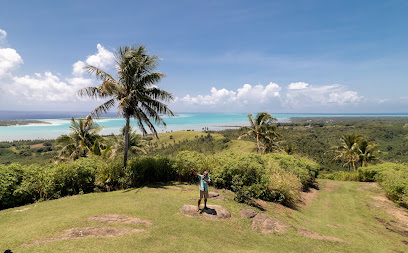
Banyan Tree
Discover tranquility under the sprawling canopy of Arutanga's majestic Banyan Tree, a serene escape into nature's embrace on Aitutaki Island.

Motu Akaiami / Akaiami Islet
Discover Motu Akaiami: A pristine Cook Islands islet with stunning beaches, vibrant reefs, and a unique aviation history.
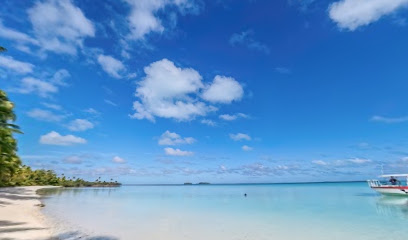
Aitutaki beach
Discover the enchanting beauty of Aitutaki Beach in the Cook Islands, where turquoise waters meet pristine sands for an unforgettable getaway.
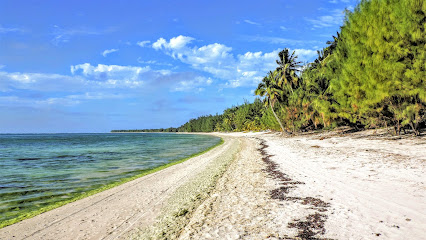
Aretuki Lookout Point
Enjoy panoramic views of Arutanga and its harbor from this easily accessible lookout point, a must-see spot on Aitutaki.
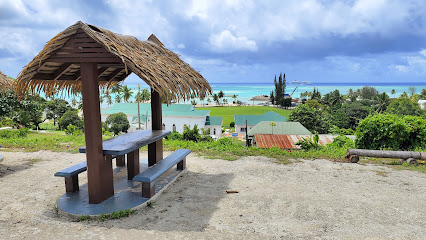
Amuri Harbour
Discover the serene beauty of Amuri Harbour in Aitutaki, Cook Islands: a tranquil escape to turquoise waters and island charm.

Essential places to dine
Pacific Resort Aitutaki
Discover luxury and tranquility at Pacific Resort Aitutaki, where pristine beaches meet exceptional service in paradise.

Avatea cafe | Aitutaki Place to Eat | Where to eat Aitutaki
Discover Avatea Cafe in Aitutaki – where local flavors meet breathtaking views for an unforgettable dining experience.
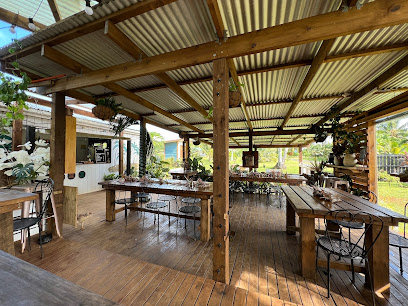
Tamanu Beach Resort
Experience authentic Cook Island hospitality at Tamanu Beach Resort in Aitutaki – where breathtaking views meet unforgettable adventures.

Koru Cafe
Experience the best of Aitutaki at Koru Cafe - where delicious food meets stunning island views in a cozy atmosphere.
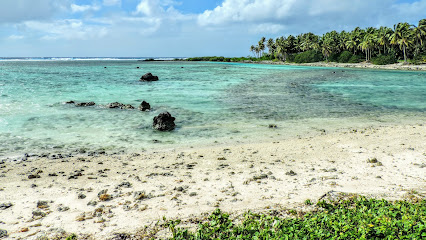
The Boat Shed
Experience exquisite seafood dining at The Boat Shed in Aitutaki—home to the best fish and chips amidst breathtaking ocean views.
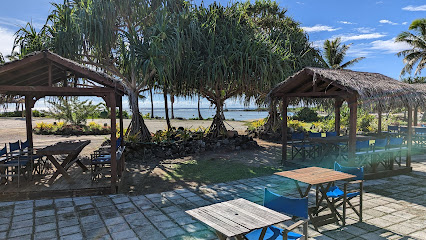
Aitutaki Village
Experience paradise at Aitutaki Village with stunning views, warm hospitality, and serene surroundings in the heart of Cook Islands.

Blue Lagoon Restaurant & Bar
Experience exquisite dining with breathtaking lagoon views at Blue Lagoon Restaurant & Bar in Aitutaki.
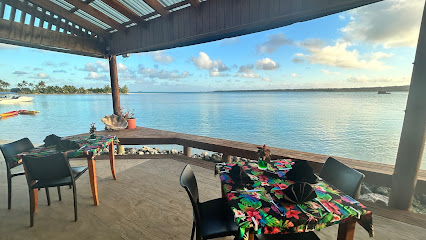
Rapae Bay Restaurant
Experience exquisite dining at Rapae Bay Restaurant in Aitutaki - where stunning views meet delicious local flavors.

Aitutaki Beach Villas
Discover the breathtaking beauty of Aitutaki Beach Villas - your luxurious gateway to paradise in the heart of the South Pacific.
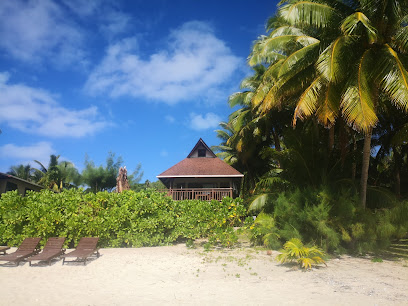
Mouarii Cafe
Discover authentic Aitutaki flavors at Mouarii Cafe – where fresh seafood meets island hospitality in Arutanga.
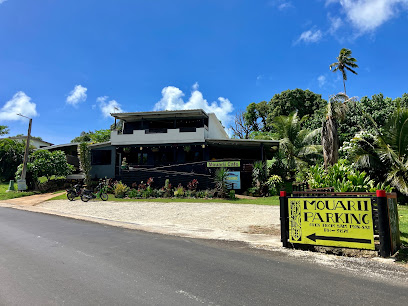
Tauono's Market and Cafe
Experience the essence of Aitutaki with fresh local produce and delightful meals at Tauono's Market and Cafe.
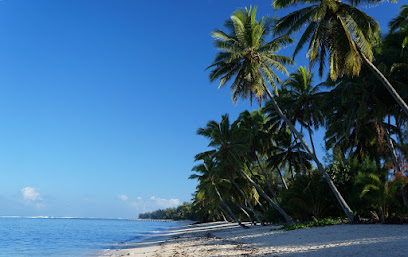
Aunty Odee'z
Experience authentic Cook Islands cuisine at Aunty Odee'z - where family-friendly dining meets tropical paradise.
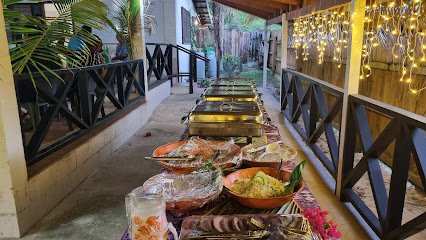
Aquila Takeaway
Discover Aquila Takeaway: A fast food gem in Amuri offering local flavors and international favorites amidst Aitutaki's stunning landscapes.
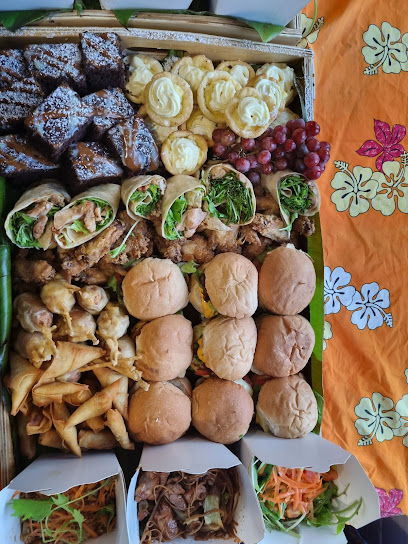
MVA's Tunu2nu
Discover authentic Cook Islands cuisine at MVA's Tunu2nu in Arutanga, where fresh ingredients meet vibrant island flavors.
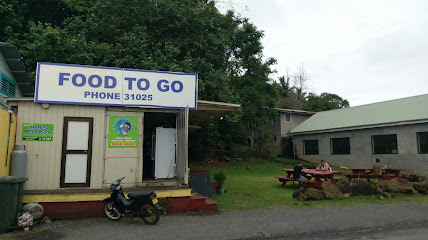
Manuia’s kitchen
Experience the authentic tastes of Aitutaki at Manuia’s Kitchen – where fresh ingredients meet island flavors.
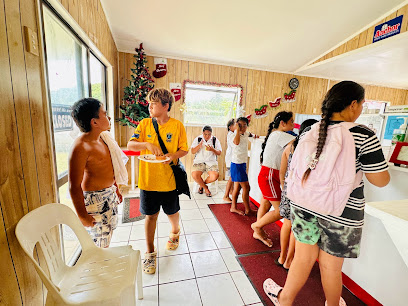
Markets, malls and hidden boutiques
Avatea cafe | Aitutaki Place to Eat | Where to eat Aitutaki
Experience the flavors of Aitutaki at Avatea Cafe, where island cuisine meets a vibrant atmosphere in a stunning tropical setting.
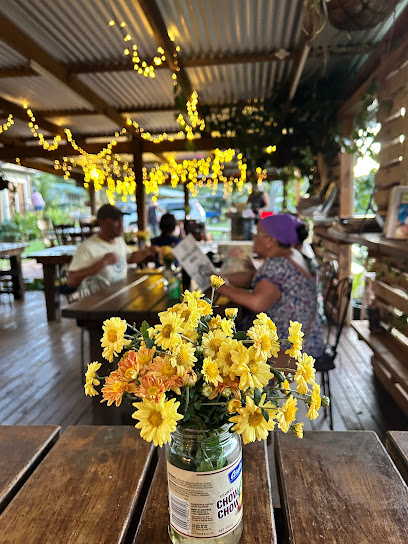
Koru Cafe
Discover the enchanting Koru Cafe in Aitutaki, where delicious local cuisine meets breathtaking island views for a perfect getaway.
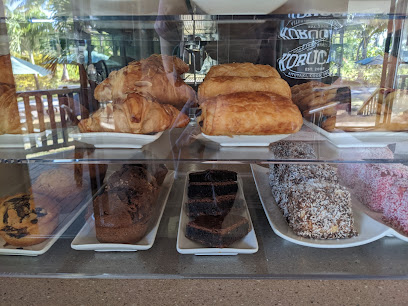
Aitutaki Village
Discover the tropical paradise of Aitutaki Village, where stunning views meet warm hospitality in the heart of the Cook Islands.

Teking Lagoon Cruises
Experience the stunning Aitutaki Lagoon with Teking Lagoon Cruises, where adventure meets tranquility in the heart of paradise.
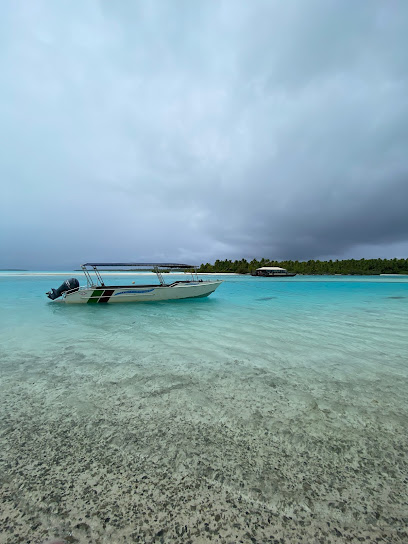
Tai Marino Beach Bungalows
Discover tranquility and natural beauty at Tai Marino Beach Bungalows, your perfect retreat in Amuri Aitutaki, Cook Islands.
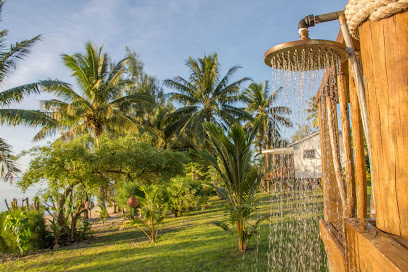
Ootu Beach
Experience the breathtaking beauty of Ootu Beach, a tranquil paradise in the Cook Islands with crystal-clear waters and stunning sunsets.
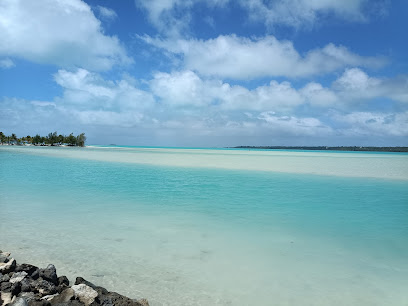
Bishop's Cruise
Experience the breathtaking beauty of Aitutaki with Bishop's Cruise, your gateway to stunning lagoons and vibrant coral reefs.
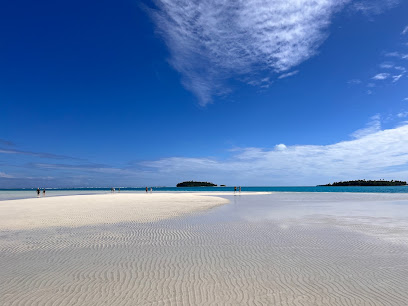
Maina Traders Superstore
Explore local flavors and everyday essentials at Maina Traders Superstore in Arutanga, your go-to supermarket in the Cook Islands.
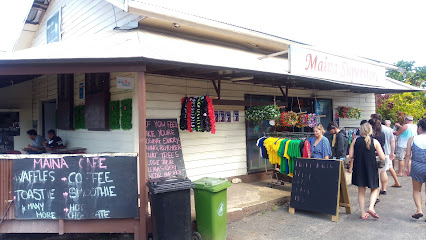
Dive Aitutaki
Experience the breathtaking underwater world of Aitutaki with Dive Aitutaki, where adventure and beauty await in the South Pacific.
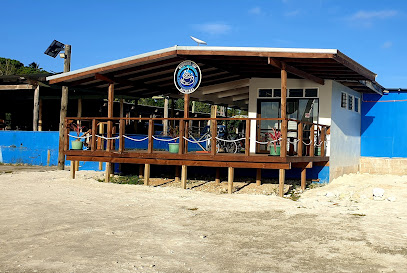
Matriki Beach Huts
Discover the serene beauty of Matriki Beach Huts in Aitutaki, where comfort meets the breathtaking nature of the Cook Islands.

Aquila Rentals and Store
Explore Aquila Rentals and Store in Amuri for all your essentials, unique local crafts, and a taste of the region's vibrant culture.
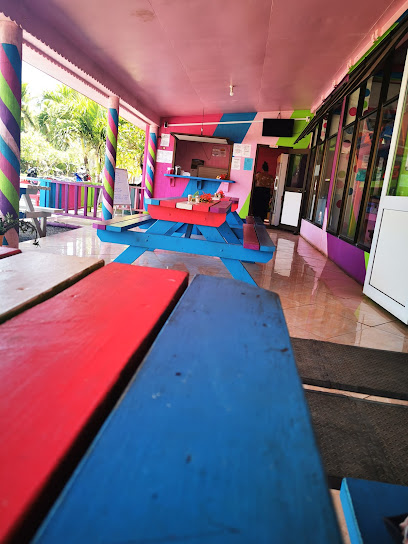
Stonefish Studio
Discover the vibrant creativity of Aitutaki at Stonefish Studio, where surfing meets art in a unique island experience.
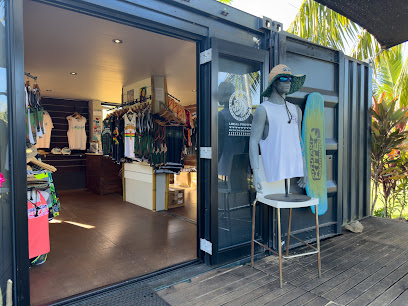
Rirei’s Store (The Heineken Store)
Discover the culinary treasures of Aitutaki at Rirei’s Store, your local grocery haven for fresh produce and unique Cook Islands specialties.
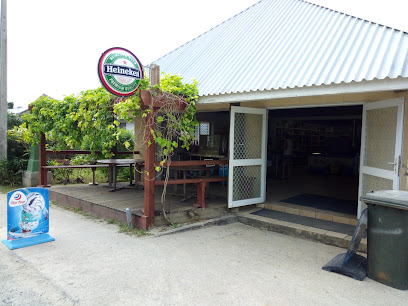
Neibaa's Supermart and Hardware
Explore Aitutaki's vibrant shopping scene at Neibaa's Supermart and Hardware, where local culture meets convenience in a shopper's paradise.
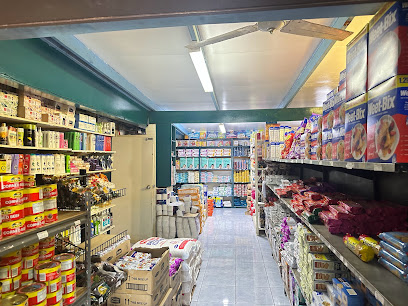
Manuia’s kitchen
Experience the local flavors of Aitutaki at Manuia's Kitchen, a top-rated takeout restaurant known for its fresh ingredients and delicious dishes.
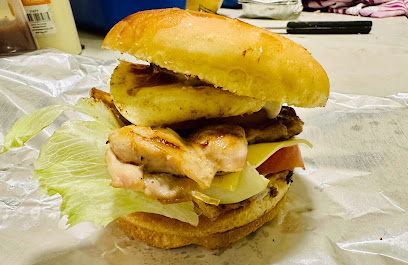
Essential bars & hidden hideouts
Avatea cafe | Aitutaki Place to Eat | Where to eat Aitutaki
Savor the authentic flavors of Aitutaki at Avatea Cafe, a culinary haven known for its fresh ingredients and warm hospitality.
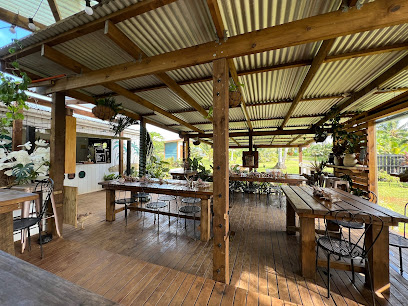
Tamanu Beach Resort
Discover the serenity and natural beauty of Tamanu Beach Resort in Aitutaki, where luxury meets the enchanting charm of the Cook Islands.

Koru Cafe
Discover Koru Cafe in Aitutaki, where every meal is a tropical delight amidst stunning island views and local charm.
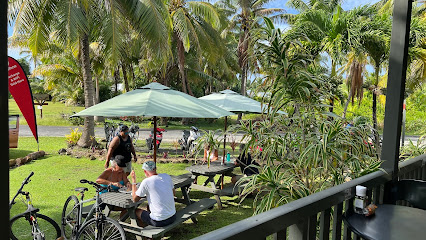
The Boat Shed
Experience the flavors of Aitutaki at The Boat Shed, a charming restaurant with stunning lagoon views and a menu that celebrates local cuisine.
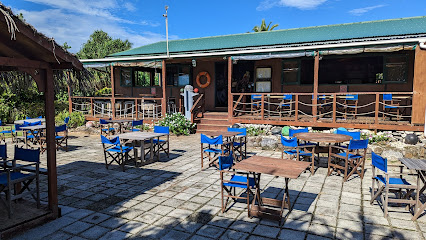
Aitutaki Village
Discover the enchanting Aitutaki Village, a serene hotel nestled in the heart of the stunning Aitutaki lagoon, perfect for relaxation and adventure.

Paradise Cove
Experience the ultimate blend of comfort and nature at Paradise Cove, your serene self-catering escape in the heart of Aitutaki, Cook Islands.

Blue Lagoon Restaurant & Bar
Experience the flavors of Aitutaki at Blue Lagoon Restaurant & Bar, where culinary delights meet breathtaking lagoon views.
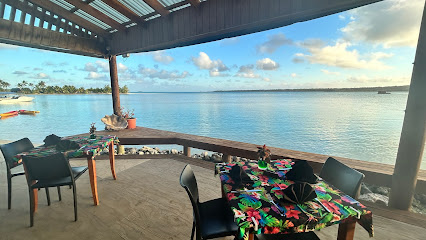
Rapae Bay Restaurant
Experience the harmony of local flavors and stunning lagoon views at Rapae Bay Restaurant, Aitutaki's premier dining destination.

Kuru Club
Experience the ultimate blend of relaxation and adventure at Kuru Club, your perfect base in Amuri, Cook Islands.
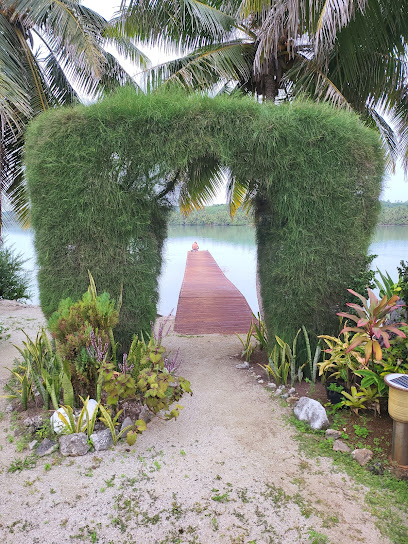
Tavake
Discover the warmth and flavors of Tavake Café in Arutanga, where every dish tells a story and every coffee brews a connection.
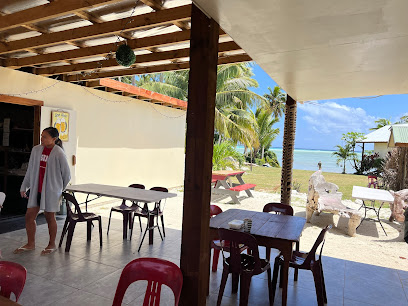
Hula Bar
Experience the vibrant nightlife at Hula Bar, Rarotonga's premier destination for cocktails, dancing, and unforgettable tropical vibes.
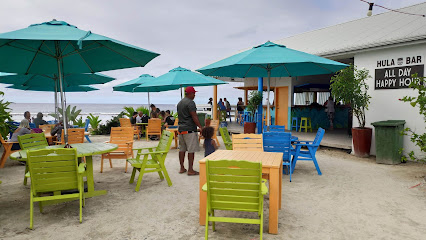
Aquila Takeaway
Discover the ultimate fast food experience at Aquila Takeaway, where deliciousness meets the laid-back vibes of Aitutaki's tropical paradise.
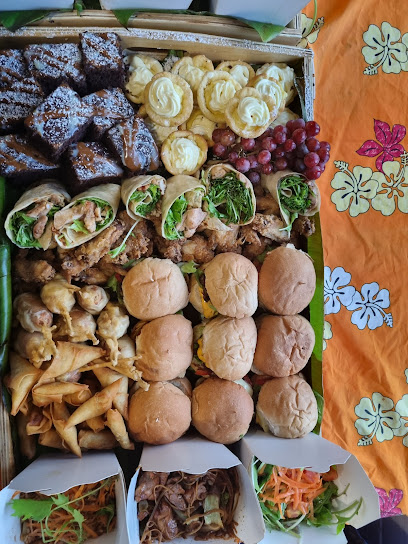
Maunga Pu
Experience the stunning panoramic views of Aitutaki from Maunga Pu, a must-visit scenic spot for nature lovers and photographers.
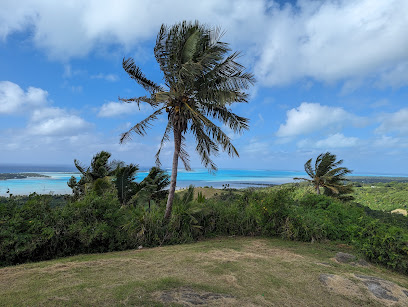
MVA's Tunu2nu
Discover the authentic tastes of the Cook Islands at MVA's Tunu2nu, where fresh ingredients and local flavors come together in a delightful dining experience.
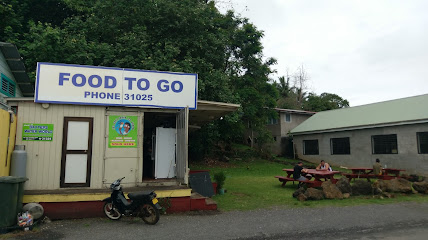
Paparei Beachfront Bungalows
Experience paradise at Paparei Beachfront Bungalows, where self-catering comfort meets the stunning natural beauty of Aitutaki in the Cook Islands.

Local Phrases about Aitutaki
-
- HelloKia orana
[key-ah oh-rah-nah] - GoodbyeAere ra
[eye-ree rah] - YesE
[eh] - NoKare
[kah-reh] - Please/You're welcomeAere mai
[eye-ree my] - Thank youMeitaki
[may-tah-kee] - Excuse me/SorryAro'a
[ah-roh-ah] - How are you?Pehea koe?
[peh-heh-ah koh-eh] - Fine. And you?Maitai. Koe?
[my-tie. koh-eh] - Do you speak English?E tika koe i te reo Ingarihi?
[eh tee-kah koh-eh ee teh reh-oh ee-ngah-ree-hee] - I don't understandKare au e rauka i te akaakano
[kah-reh ow eh rah-oo-kah ee teh ah-kah-ah-kah-noh]
- HelloKia orana
-
- I'd like to see the menu, pleaseKa riro au e kite i te meniu, aere mai
[kah ree-roh ow eh kee-teh ee teh meh-nee-oo, eye-ree my] - I don't eat meatKare au e kai i te kai
[kah-reh ow eh kah-ee ee teh kah-ee] - Cheers!Manuia!
[mah-noo-ee-ah] - I would like to pay, pleaseKa riro au e uaina, aere mai
[kah ree-roh ow eh oo-eye-nah, eye-ree my]
- I'd like to see the menu, pleaseKa riro au e kite i te meniu, aere mai
-
- Help!Aua!
[ah-oo-ah] - Go away!Aere atu!
[eye-ree ah-too] - Call the Police!Tari i te puri
[tah-ree ee teh poo-ree] - Call a doctor!Tari i te taote
[tah-ree ee teh tah-oh-teh] - I'm lostKare au i kitea
[kah-reh ow ee kee-teh-ah] - I'm illOu kata
[oh kah-tah]
- Help!Aua!
-
- I'd like to buy...Ka riro au e tano,
[kah ree-roh ow eh tah-noh] - I'm just lookingE tiro au
[eh tee-roh ow] - How much is it?E hia?
[eh hee-ah] - That's too expensiveTei roa te moni
[teh roh-ah teh moh-nee] - Can you lower the price?E taea e koe te itiiti i te moni?
[eh teh-ah eh koh-eh teh ee-tee-ee-tee ee teh moh-nee]
- I'd like to buy...Ka riro au e tano,
-
- What time is it?E hia te ora?
[eh hee-ah teh oh-rah] - It's one o'clockTe ora tahi
[teh oh-rah tah-hee] - Half past (10)E toru
[eh toh-roo] - MorningAvaiki
[ah-vah-ee-kee] - AfternoonApoapo
[ah-poh-ah-poh] - EveningAiai
[eye-eye] - YesterdayIne
[ee-neh] - TodayAnei
[ah-neh-ee] - TomorrowApopo
[ah-poh-poh] - 1Tahi
[tah-hee] - 2Rua
[roo-ah] - 3Toru
[toh-roo] - 4Maha
[mah-hah] - 5Rima
[ree-mah] - 6Ono
[oh-noh] - 7Fitu
[fee-too] - 8Varu
[vah-roo] - 9Iva
[ee-vah] - 10Ngauru
[ngow-roo]
- What time is it?E hia te ora?
-
- Where's a/the...?Kei aia te ...?
[keh eye-eye-ah teh] - What's the address?Kei aia te tuaina?
[keh eye-eye-ah teh too-eye-nah] - Can you show me (on the map)?E taea e koe te whakaatu mai i au (ki te mahere)?
[eh teh-ah eh koh-eh teh fah-kah-ah-too my ee ow (kee teh mah-heh-reh)] - When's the next (bus)?Ahea te toru?
[ah-heh-ah teh toh-roo] - A ticket (to ....)He tiketi (ki ...)
[heh tee-keh-tee (kee)]
- Where's a/the...?Kei aia te ...?
History of Aitutaki
-
Aitutaki's history begins with its original Polynesian settlers, believed to have arrived as early as 800 AD. These early inhabitants navigated the vast Pacific Ocean using sophisticated voyaging canoes and celestial navigation techniques. They established a thriving community on the atoll, developing a rich culture and traditions that have endured through the centuries.
-
The European discovery of Aitutaki is credited to Captain William Bligh of the HMS Bounty, who sighted the island on April 11, 1789, just weeks before the infamous mutiny. Bligh's encounter marked the beginning of increased Western interest in the Cook Islands and Aitutaki specifically. Despite initial contact, the island remained relatively isolated from European influence for several decades.
-
In 1821, the London Missionary Society sent John Williams and Papeiha to Aitutaki. Their arrival heralded significant social and cultural changes, as they introduced Christianity to the islanders. The missionaries' influence led to the construction of churches and the establishment of Western education practices, which profoundly impacted Aitutaki's traditional ways of life.
-
During World War II, Aitutaki played a strategic role as a refueling stop for Allied forces in the Pacific. The United States established a military base on the island, bringing infrastructure developments such as the current airstrip. This period also saw increased interaction between the islanders and the outside world, leading to lasting influences on the local economy and culture.
-
In the latter half of the 20th century, Aitutaki experienced significant developments in its tourism industry. The island's stunning lagoon, pristine beaches, and vibrant culture attracted visitors from around the world. Today, tourism is a major economic driver, with efforts focused on sustainable practices to preserve Aitutaki's natural beauty and cultural heritage.
Aitutaki Essentials
-
Aitutaki is accessible primarily via air travel. The main gateway to the Cook Islands is Rarotonga International Airport (RAR), which receives international flights from New Zealand, Australia, and other Pacific islands. From Rarotonga, you can take a domestic flight to Aitutaki Airport (AIT). Air Rarotonga operates multiple daily flights, and the journey takes approximately 50 minutes. There are no direct international flights to Aitutaki, so a layover in Rarotonga is necessary.
-
Getting around Aitutaki is relatively straightforward. The island is small, and many visitors prefer to rent scooters, bicycles, or cars to explore at their own pace. Scooter and bicycle rentals are widely available and offer a scenic and enjoyable way to see the island. Taxis are also available but can be more expensive. Additionally, some accommodations provide shuttle services to key attractions. There is no public bus system on Aitutaki.
-
The official currency of the Cook Islands is the New Zealand Dollar (NZD). Credit cards are accepted at most hotels, restaurants, and larger shops, but it's advisable to carry some cash for smaller establishments and markets. ATMs are available on the island, but it is wise to withdraw sufficient cash in Rarotonga before heading to Aitutaki to avoid any inconvenience.
-
Aitutaki is generally a safe destination for tourists. Crime rates are low, and serious crimes are rare. However, it's always good practice to take standard precautions, such as not leaving valuables unattended and being cautious when walking alone at night. There are no areas or neighborhoods in Aitutaki known for high crime rates targeting tourists, but staying aware of your surroundings is always advisable.
-
In case of an emergency, dial 999 for police, fire, and medical services. There is a hospital on Aitutaki that can handle most medical emergencies, but for severe cases, evacuation to Rarotonga or New Zealand may be necessary. It is recommended to have travel insurance that covers medical emergencies and evacuation. Pharmacies are available for minor health issues and over-the-counter medications.
-
Fashion: Do dress modestly, especially when visiting local villages or churches. Swimwear is acceptable at the beach but should be covered up when away from the water. Religion: Do respect local customs and traditions. Sundays are considered a day of rest and worship, so many businesses may be closed. Public Transport: Do use rental services for scooters and bicycles, as public transport is not available. Greetings: Do greet locals with a friendly 'Kia Orana' (hello) and a smile. Eating & Drinking: Do try local delicacies and accept food offerings graciously. Don’t refuse hospitality, as it is considered impolite.
-
To experience Aitutaki like a local, visit the local markets where you can buy fresh produce and traditional crafts. Engage with the locals, who are known for their friendliness and hospitality. Don’t miss the opportunity to join a Sunday church service, which is an integral part of the local culture and features beautiful hymns. For a unique experience, take a lagoon tour to explore the stunning marine life and uninhabited motus (islets).
Trending Landmarks in Aitutaki
Nearby Cities to Aitutaki
-
Things To Do in Nikao
-
Things To Do in Avatiu
-
Things To Do in Matavera
-
Things To Do in Arorangi
-
Things To Do in Ngatangiia
-
Things To Do in Muri
-
Things To Do in Takitumu
-
Things To Do in Maupiti
-
Things To Do in Bora Bora
-
Things To Do in Raiatea
-
Things To Do in Huahine
-
Things To Do in Moorea
-
Things To Do in Papeete
-
Things To Do in Tetiaroa
-
Things To Do in Tahiti









